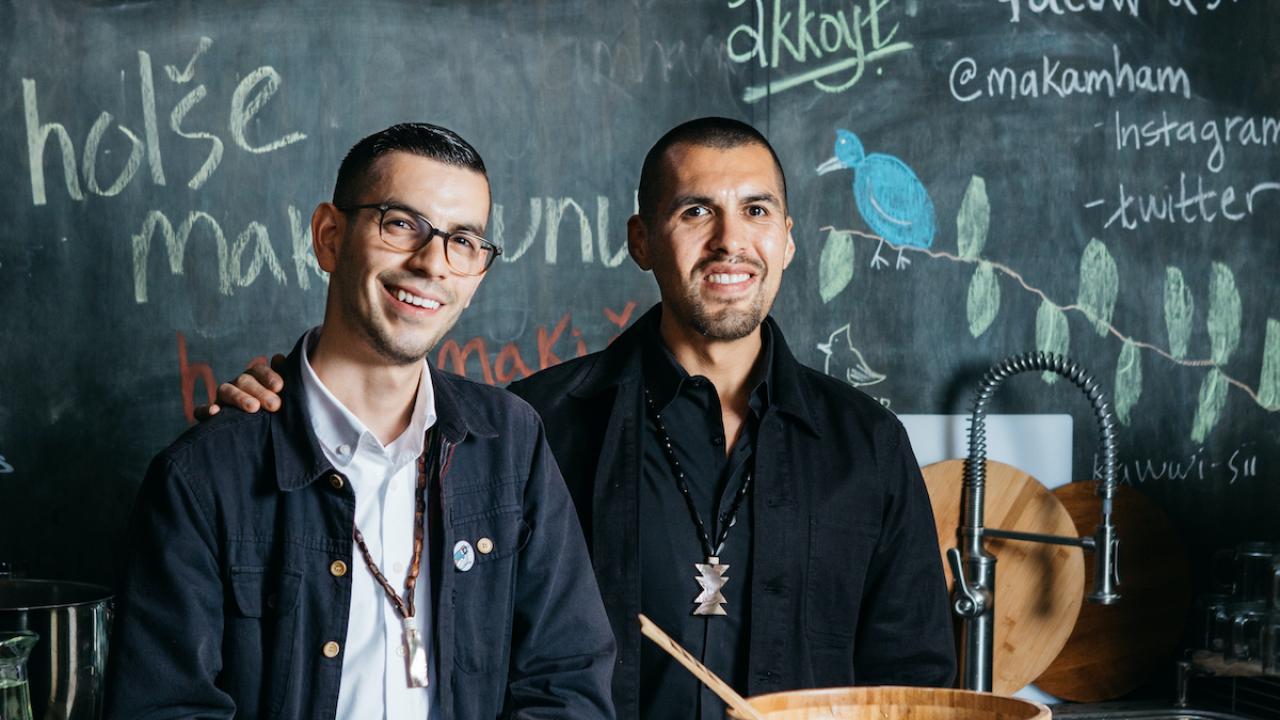
Cafe Ohlone Offers a Taste of Ohlone Past, Present, and Future
Jonathan Radocay covered our spring event for the UC Davis Humanities Institute:
“What happens to our research, teaching, and service activities if we put Indigenous Peoples, places, and practices at its center?” Dr. Jessica Bissett Perea (Dena’ina), Assistant Professor of Native American Studies at UC-Davis, posed this framing question at the beginning of “A Taste of Ohlone,” an April 21 event hosted by the Radical and Relational Approaches to Food Fermentation and Food Sovereignty DHI Transcollege Research Cluster and was featured as a part of the Robert Mondavi Institute for Wine and Food Science’s Sips and Bites series. Cafe Ohlone (mak-‘amham) co-founders Vincent Medina (Chochenyo Ohlone) and Louis Trevino (Rumsen Ohlone) demonstrated what is possible by guiding event participants through a series of 4 tastings of Ohlone foods and ingredients. What happens to our understanding of what is now known as the San Francisco Bay Area if we put Ohlone histories, languages, and flavors at its center?
In advance of the event, participants received a tasting box of 4 different foods on mak-‘amham’s menu. mak-‘amham “means our food in Chochenyo language,” Medina explained, “the Indigenous language of eastern San Francisco Bay.” Medina and Trevino opened Cafe Ohlone in Berkeley, CA in 2017 because they were inspired by past generations’ successes in the revitalization of Ohlone language, storytelling, and land stewardship practices. They wanted to contribute to these ongoing processes of healing through the power of Ohlone foods and flavors.
Before diving into the evening’s tastings, Medina and Trevino situated the Ohlone ingredients and foods they were about to share into a broader history of Ohlone Peoples and into the web of community relationships and practices that they and their families participate in. Many of mak-‘amham’s foods, they explained, are connected to enduring traditions of Ohlone land stewardship, including periodic cultural burns and fire ecology that are important to managing the East Bay’s interconnected food systems on which all life depends. Medina and Trevino said that the abundance from which they gather their ingredients must be responsibly managed and emphasized that these Ohlone practices were not only important to the experience of Ohlone foods but also to the future of our present food systems. “Our culture,” Medina explained, “it should not just be relegated to something in the past but should be looked at as something in the present and something that is going to be increasingly important to the public in the future.”
Continue readings the full article here: https://dhi.ucdavis.edu/featured-stories/cafe-ohlone-offers-taste-ohlone-past-present-and-future